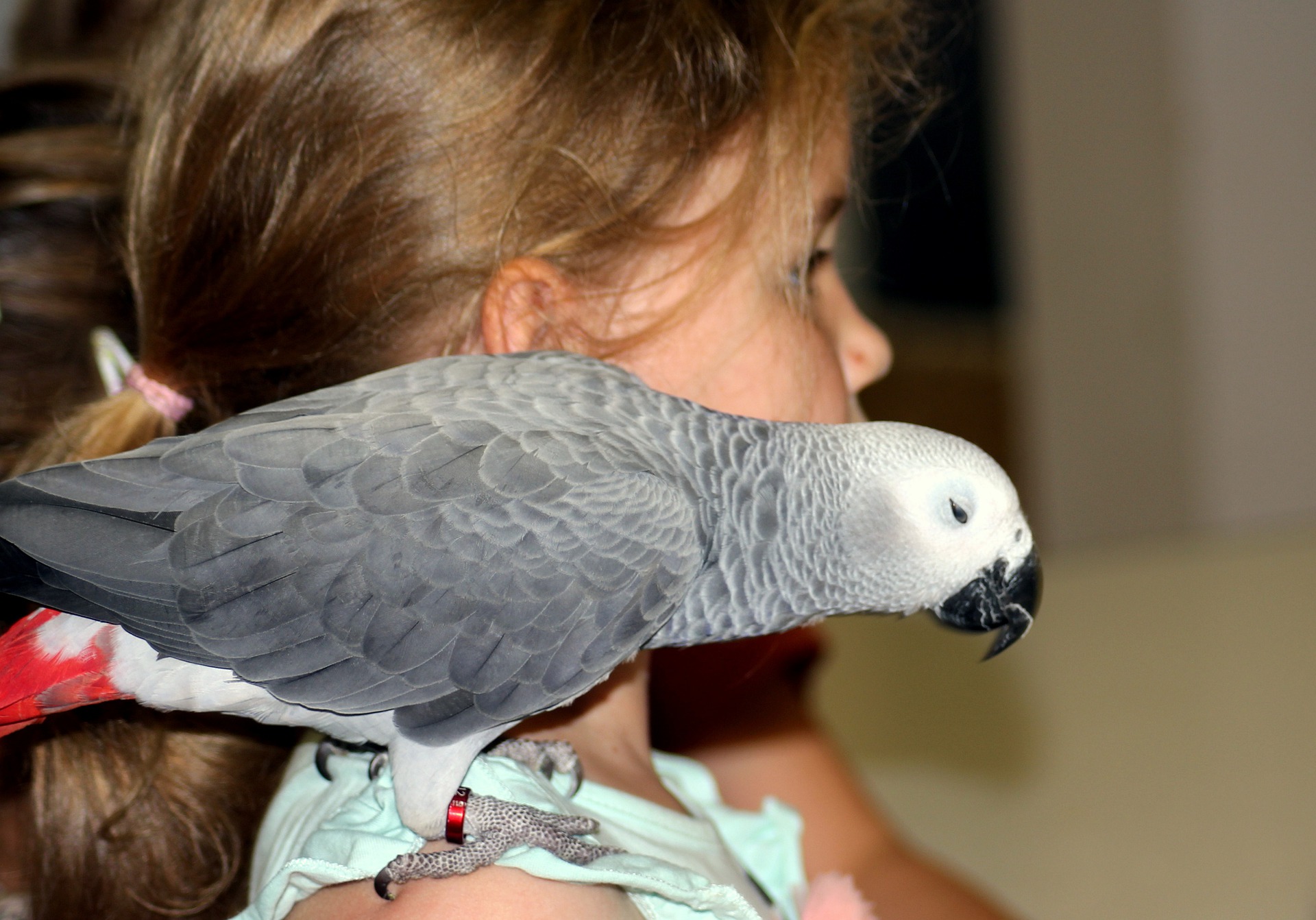Introduction
The African Grey Parrot is a medium-sized parrot native to the forests of West and Central Africa. It is a popular pet bird, and its striking plumage, intelligence, and ability to mimic human speech have made it one of the most recognizable parrots in the world. In this article, we will cover information on how to extend the lifespan of African grey parrots.
These parrots are generally healthy birds aged 40 to 60 years in captivity. However, like all parrots, they are susceptible to a number of health problems, some of which can be fatal if not treated promptly.
To ensure your parrot enjoys a long and healthy life, it is important to provide a proper diet, appropriate cage size and lighting, and regular vet check-ups.
CLICK HERE TO GET OUR GUIDE TO HELP YOU TRAIN YOUR BIRD TO STOP BITING
Typical lifespan in captivity
The average lifespan in captivity is 40 to 60 years. However, some individual birds have been known to live for over 70 years.
To maximize your bird’s lifespan, providing it with a healthy diet, adequate exercise, and a clean and safe environment is important. Additionally, regular vet check-ups are essential to catch any health problems early on.
Proper Diet
African Greys need to have a diet of both a balanced diet and an appropriate amount of variety. If an African Grey is eating a balanced diet, there must be enough variety in the diet to be adapted to the individual’s changing nutritional needs.
Nutrition
There are a wide variety of foods that an African Grey can eat. There are also many different opinions on what type of food an African Grey should eat. These opinions are based on the experiences of bird owners, the opinions of veterinarians, and other bird lovers that have not gone to school for veterinary medicine. All birds need protein, calcium, vitamins, and minerals in order to live healthy lives. The amount needed will differ for each individual bird, as well as the amount available to each particular bird because of their living environment.
In order for an African Grey to be healthy, it is critical that they eat a proper diet that includes certain types and quantities of foods. The best overall diet is an all-natural feed. This will provide the best nutritional value, but it is not always affordable or feasible. Every bird in captivity should be fed a properly formulated, nutritious, and varied diet as they are growing up.
These parrots are also known to enjoy eating:
- Cooked rice
- Pasta
- Oatmeal
- Quinoa
- Beans
- Peas
- Corn
These foods can be offered as part of your bird’s diet but should not make up more than 10% of its overall intake.
In addition to a healthy diet, they also need access to clean, fresh water at all times. A water bottle with a sipper tube is the best way to provide your bird with water, as it prevents contamination and keeps the water clean.
Appropriate cage size & lighting
The minimum cage size is 24″ x 24″ x 36″. However, larger cages are always better, as they provide your bird with more space to exercise and explore.
When it comes to cage lighting, grey parrots need 12-14 hours of light per day. This can be provided by natural sunlight or artificial lighting, such as full spectrum bulbs.
If you are interested in building your own aviary to help extend the lifespan of African grey parrots, click here.
Bird-proofing your home
The grey parrots are curious birds and will want to explore every nook and cranny of your home. To prevent your bird from getting into trouble, it is important to bird-proof your home before bringing it home.
Some tips for bird-proofing your home include:
- Covering electrical outlets with covers or plugs
- Putting away small objects that could be choking hazards
- Hiding cords and wires
- Keeping cleaning products and other chemicals out of reach
- Closing doors and windows to prevent escape
Timing of vet visits
These parrots should see a vet at least once a year for a wellness check-up. Additionally, if your bird is showing any signs of illness, it should be seen by a vet as soon as possible. Some common signs of illness include:
- Fluffed-up feathers
- lethargy
- Loss of appetite
- Weight loss
- Diarrhea
- Vomiting
- Nasal discharge
- Sneezing
- Coughing
- Wheezing
- Changes in behavior
If you notice any of these signs in your bird, please contact your vet right away.
Conclusion
African grey parrots are intelligent, social birds that make great pets. They require a lot of care and attention, but if you are willing to put in the work, they can be wonderful companions.
If you are considering getting an African grey parrot, please research to ensure you are prepared to take on the responsibility. These birds have specific needs that must be met to thrive, so it is important to ensure you are up for the challenge before making the commitment. The lifespan of African grey parrots is dependent in large part to the factors above.
